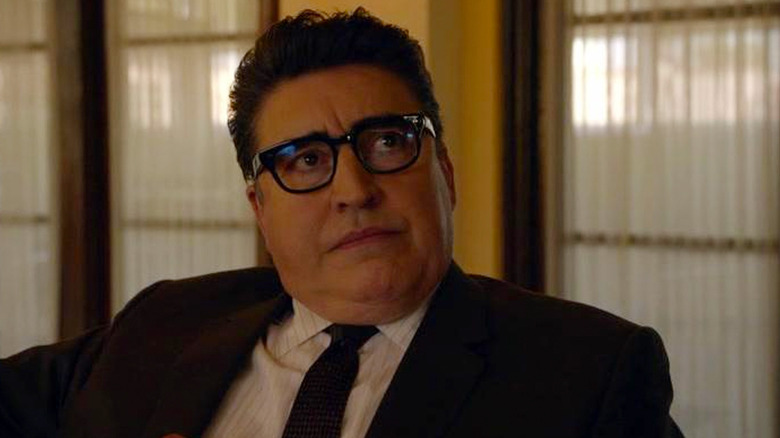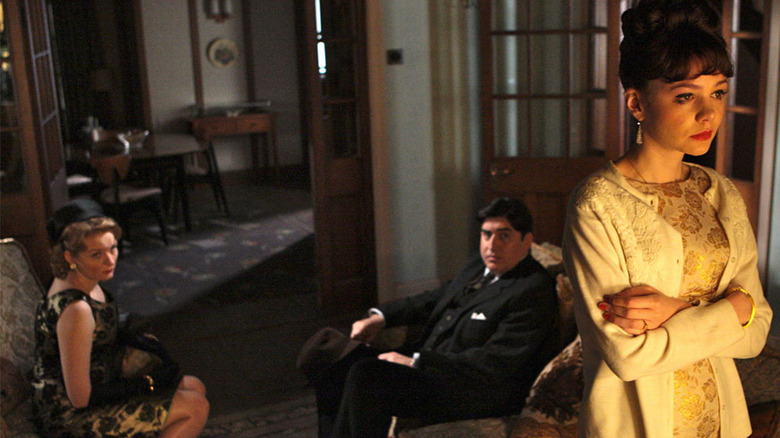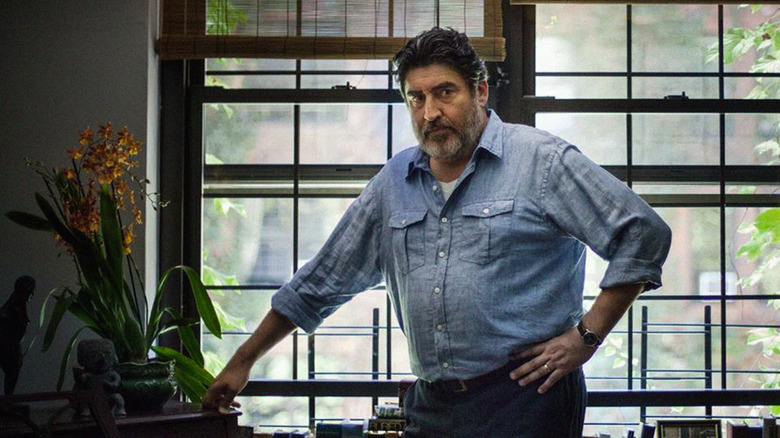Alfred Molina Thinks He Was 'Selfish' For Choosing Acting As His Career
Alfred Molina always knew he wanted to be an actor — ironically, even before he fully understood acting as a concept. Growing up as "one of nature's fat kids" in the bohemian, multicultural Noting Hill, acting began as an extension of survival. As he grew up though, it quickly became a serious interest. "When I first started acting in school plays, rehearsing, learning about makeup, I loved it," Molina told The Scotsman in 2010. "I loved everything about it. It filled me with joy. I knew I suddenly belonged. I found complete peace."
Molina has since become one of the most versatile, instinctive actors of his generation. His work feels effortless and, yeah, like he was born to do it. It's hard to imagine a man so at home both on the stage and screen doing anything else, but that very well might have been the case for Molina — at least at one point. As a child of immigrants — a father from Spain and a mother from Italy — Molina was expected to follow in his parents footsteps and find a well-paying, sensible job. His father had even managed to secure Molina a position as a waiter in the same hotel he worked in. "Including tips, I was taking home 50 a week, good money in the '70s."
But still, Molina felt a pull to the arts — and while the choice to follow his heart may seem brave to some, the actor maintains that it may have been a "selfish" decision more than anything else.
'My old man thought I'd lost my mind'
While Molina's parents never outright discouraged him from pursuing acting, they didn't fully understand his choice either. "They weren't mean," he explained. "They never said 'what are you playing at?' But they weren't involved in it."
Molina's father especially struggled with his career choice. His first acting gig paid him "equity minimum wages, 15 a week." It paled in comparison to his 50-pounds-a-week job at the hotel, and the opportunity to train as an assistant manager. Of course, Molina eventually turned the offer down, which introduced a slight rift in his relationship with his father:
"My old man thought I'd lost my mind. He just didn't understand. He kept making me go through the figures, going 'and how much are you going to make?' I could see this terrible defeat in his eyes."
It's not that Molina's father was against him pursuing a dream; he likely wondered if he'd be able to support himself once he was on his own, especially considering how hard his parents worked just to establish themselves in England. "I remember him saying people like us don't become actors. People who are the sons of working-class immigrants. To my father, actors were from another social strata."
'It's as if all your efforts are being completely disregarded'
Molina's riff with his father is the quintessential struggle that so many arts-inclined children of immigrants face — and it's something that few can recognize unless they've lived it:
"My English friends don't get it. They say 'surely they must have been proud of you for doing what you wanted?' I always say 'you're not an immigrant. You don't know what it's like'. You work every hour that God sends in order that your children don't have to do what you do. Then your son puts himself willingly in the way of all kinds of jeopardy — financial insecurity, rejection, regular bouts of unemployment — and it's as if all your efforts are being completely disregarded. I think it's the same for all immigrants, wherever they come from."
Against all odds, Molina has carved out a space for himself in a notoriously fickle industry — but the actor still maintains that his choice was a selfish one. "It was all about me, what I wanted." Again, the age-old dilemma between duty and a dream. "I'll tell you what was brave. My parents letting me do it."


